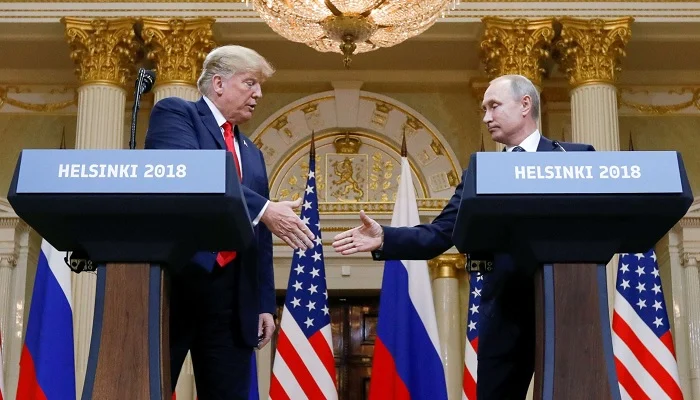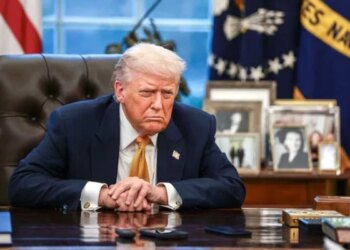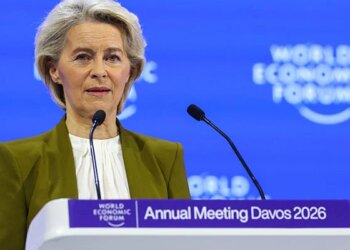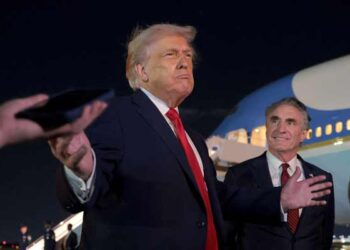Select Language:
A summit between U.S. President Donald Trump and Russian President Vladimir Putin was temporarily halted on Tuesday because Moscow declined an immediate ceasefire in Ukraine, casting doubt over diplomatic negotiations.
A high-ranking White House official told Reuters, “There are no plans for President Trump to meet with President Putin in the near future,” following a “productive” call between Secretary of State Marco Rubio and Russian Foreign Minister Sergei Lavrov, which did not lead to an in-person meeting.
Trump had previously announced that he and Putin were expected to meet soon in Hungary, aiming to find a resolution to the conflict in Ukraine. However, Putin remains reluctant to make concessions, insisting that Ukraine surrender more territory before any ceasefire can be considered.
When asked about the potential summit, Trump expressed a desire to avoid a “wasted meeting,” but indicated that further developments could occur and that “we’ll be informing you over the next couple of days.”
Putin’s investment envoy, Kirill Dmitriev, stated on social media that “preparations are ongoing” for a summit.
Russia reaffirmed its longstanding position for a peace agreement in a private communication known as a “non-paper,” sent to the U.S. last weekend. According to two U.S. officials and other sources, the message reiterated Russia’s demand for control over the contested eastern Donbas region, effectively rejecting Trump’s call for a ceasefire based on freezing current frontline positions.
Russia currently controls all of Luhansk Province and about 75% of neighboring Donetsk, which together comprise the Donbas area.
European leaders appealed to Washington on Tuesday to stand firm in demanding an immediate ceasefire in Ukraine, using the current frontlines as the foundation for future negotiations.
NATO announced that Secretary General Mark Rutte traveled to Washington for discussions with Trump, scheduled for Wednesday. An unnamed Western official indicated Rutte would present European perspectives on the ceasefire and subsequent peace talks to the U.S. president.
Despite prior talks with Zelenskiy and a summit with Putin in Alaska, Trump hoped for another key meeting with Putin. However, the planned preparatory meeting in Budapest between Rubio and Lavrov was canceled, signaling possible complications.
In a phone call Monday, Lavrov emphasized that the timing and location of a future Trump-Putin summit were less critical than their shared commitment to implementing the agreements from Alaska. The Kremlin noted that no firm date had been set, and significant preparation would be needed, possibly taking time.
Kremlin spokesman Dmitry Peskov said, “We have an understanding at the presidential level, but we can’t postpone what isn’t finalized. Neither Trump nor Putin provided specific dates.” When asked about a potential date, Peskov responded, “No, there is no clear understanding.”
While plans for Trump to meet with Putin remain unconfirmed publicly, Hungary’s foreign minister, Peter Szijjarto, was in Washington Tuesday, hinting at upcoming critical days.
Two senior European diplomats suggested that the cancellation of the Rubio-Lavrov meeting indicated the U.S. was unlikely to proceed with a Trump-Putin summit unless Moscow adjusts its demands. One diplomat remarked, “I suppose the Russians wanted too much, and Americans realized there wouldn’t be a deal in Budapest.” Another added that Russia’s position remains unchanged, refusing to halt their advances, with Lavrov reportedly relaying that stance to Rubio.
European allies expressed concern that Trump might meet Putin again without securing meaningful concessions. Leaders from Britain, France, Germany, and the EU issued a statement affirming their support for Trump’s position that hostilities should cease immediately, with current contact lines serving as the starting point for negotiations.
Last week, Trump spoke with Zelenskiy and publicly backed a ceasefire at the current positions— a stance that many European leaders endorse. Reports suggest that the private White House meeting with Zelenskiy was tense, with Trump reportedly using profanities and pressing Zelenskiy to accept some Russian demands. Zelenskiy, however, regarded the meeting as successful because it resulted in Trump’s public support for a ceasefire along the existing lines.
European leaders plan to meet Zelenskiy this week, first at an EU summit and later with countries in the “coalition of the willing” advocating for a security force to support Ukraine’s post-war stability—a plan Russia opposes.
The choice of Budapest as the venue for a potential Putin-Trump meeting is contentious within the EU; Hungary’s Prime Minister Viktor Orban maintains a notably friendly stance toward Russia. Any travel through European airspace would require Russian aircraft to navigate other EU countries’ skies. Poland warned it could intercept and arrest Putin if he overflies Polish territory, while Bulgaria indicated it would permit such transit.
[The rest of the technical scripting details related to the website and multimedia content are omitted here as they are not part of the narrative.]







